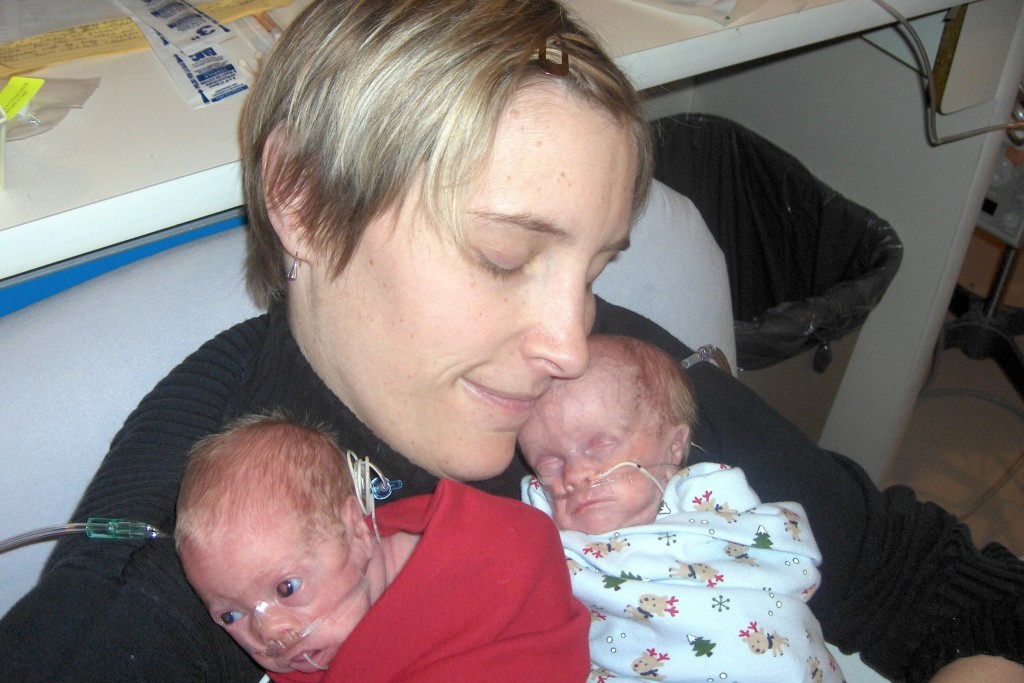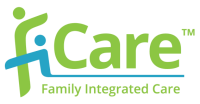Parents and staff share their experiences
FICare families and staff feel enriched by the experience of working together in the NICU in the care of their unwell and/or preterm infants.

The Mazurkewich’s Story
“Our first week in the NICU left us feeling very frustrated and unsure of how to best help our premature twins. With the invitation to join [the FIC pilot project] came greater access to their charts and test results, and the training in how to interpret the information. Becoming part of their “care team” helped us create strong relationships – with Nurses, Doctors, Lactation Consultants – which helped us learn how to deal with both our babies’ unique challenges and the NICU/Level 2 environment. It was this amazing support network that helped us stay positive, feel more confident and do our best for our children. We are very grateful to everyone involved in this program.

Lori’s Story
“I think the voice of parents who have ‘survived’ the NICU experience are essential to include. I often shared personal opinions and gave advice during planning discussions – about how education sessions should ‘look’, what the physical space might include, and what I felt parents would need. In our situation, I thought it was great that three veteran parents participated and brought varied NICU experiences, and thoughts and abilities to the group both behind the scenes at Steering Committee meetings and when visiting parents. I believe Family Integrated Care is a solid step in this direction and am very excited knowing that these best practises will be implemented on a larger scale. The formal education sessions are essential and inspire parents – and sometimes force them – to learn about their unique little babies and how to help them grow and develop successfully.”
FICare Parent
“The Family Integrated Care Study gave us an invaluable opportunity to actively participate in our daughter’s care in the NICU. At a time when I felt extreme emotional distress, FICare provided me with the knowledge and confidence to be able to cope with the ups and downs that go along with having a preemie. The study strikes an important balance between parent intuition and medical experience that I have no doubt greatly contributed to my daughter’s growth and development.”
Clare, RN
“I think it gives parents a sense of purpose. Initially it’s hard, but once they become part of family integrated care and can see the benefits, they continue on – and those parents usually bring other parents along with them. They really feel part of the team; it increases their confidence. They get to know their babies really well.”
Kelly, RN
“The teaching sessions were really beneficial for the parents because they became more engaged. There was actually a plan for them to get involved as opposed to them waiting until they initiated or the staff felt they were ready for it. It also created a nicer relationship between the staff and the parents. I think that the most important part for these parents was figuring out and learning that they are the one constant in the baby’s world.”
Cindy GR, RN
“I think our staff has come a long way with it. Everybody did a lot of [integrated care] anyway, but it was important for nurses to understand that it is important for them and their relationship with the parents. We need to help parents along the way, because it’s easy to just go in and talk to them and feed their baby and give them their meds and walk away, but this [program] really engaged the parents and the staff. I think that, in the long run, it made a big difference for everyone.”
Valerie, RN
“We’re a small unit so a lot of our parents get to know everybody anyway, but with FiCare we did try to have more consistent nurses with the families. So the more time we spend with them, the more confident the parent is with the nurse, and not afraid to ask questions. Also, the staff got to know what the parent could do, and let them do it.”
Cindy T, RN
“[Parent education] is definitely helpful. I think a lot of parents, if they don’t have the actual education they really rely on getting information from the internet, which may or may not be the right information. So I think the education was quite beneficial.”
